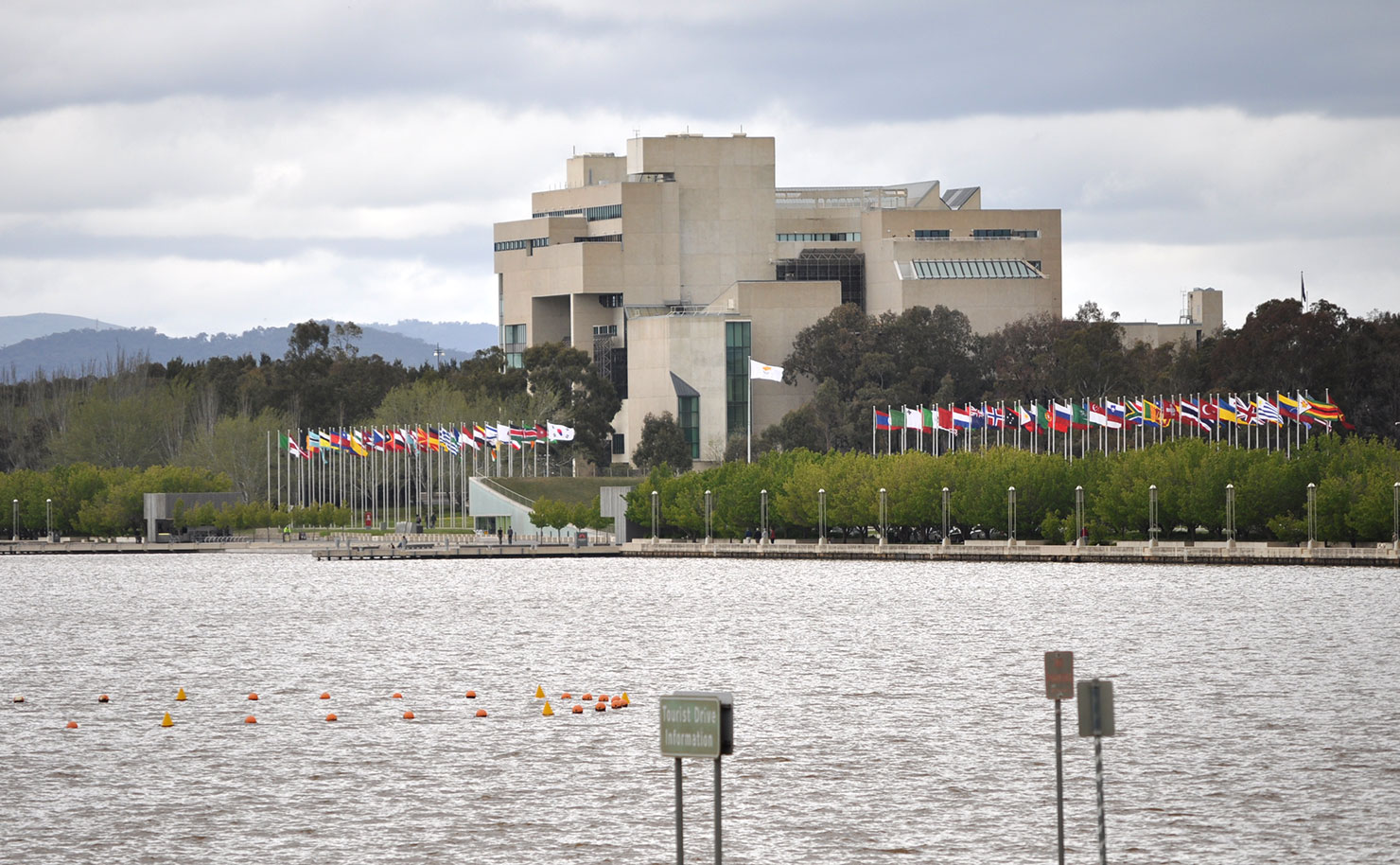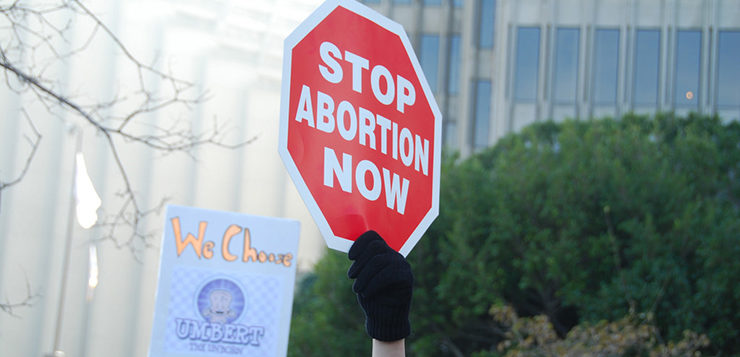Over the weekend, conservatives in America appointed a judge accused of sexual assault to the Supreme Court. Chief on their hit-list is overturning legal precedents like Roe vs Wade, which enshrines the right of women to have access to safe abortions. Meanwhile, in Australia, our anti-abortionists are trying their own legal manoeuvres launching a High Court bid to overturn laws which restrict their ability to abuse and harass women seeking the procedure.
The High Court will tomorrow hear three days of arguments over Victoria’s ‘safe access zone laws’, which were introduced following a Supreme Court challenge by the East Melbourne-based Fertility Control Clinic (FCC) to end decades of harassment by anti-abortionists outside the Melbourne clinic.
That harassment included the murder of security guard Steven Rogers in 2001 by Peter James Knight, who arrived with a high powered rifle to the clinic, intending to massacre the 15 staff and 26 patients. Knight – a Christian extremist who was ultimately sentenced to life in prison – was disarmed by two bystanders after shooting Rogers in the chest.
The anti-abortionist behind the High Court challenge – Melbourne resident and mum of 13, Kathleen Clubb – was convicted in 2016 for communicating about abortion to a couple in a manner ‘reasonably likely to cause distress or anxiety’ outside the Fertility Control Clinic. She was fined $5000. The full bench of the High Court will also consider the case of John Graham Preston, who breached similar laws in Tasmania.
Clubb and Preston’s convictions followed the introduction of laws which made it an offence to harass, film or intimidate patients or staff within 150 metres of an abortion clinic. The High Court has been asked to determine whether one part of the laws, which prohibits communications “reasonably likely to cause distress or anxiety”, is constitutional.
The Fertility Control Clinic, represented pro bono by Maurice Blackburn Lawyers and the Human Rights Law Centre, have both intervened in the case to defend laws that ensure women and staff can access reproductive health services free from abuse. Currently, NSW, the ACT, Northern Territory and Tasmania and Victoria have safe access zone laws. A Bill is currently before the Queensland Parliament to achieve the same laws.
Dr Susie Allanson, who worked as a clinical psychologist at the clinic for 26 years, said the laws had ended decades of harmful abuse and intimidation directed at women and staff outside the clinic.
“Before safe access zones, our patients and staff would have to run a gauntlet of anti-abortionists to enter the clinic. Women would turn up scared and noticeably shaken. In some cases, they were too intimidated to attend their follow-up appointments, which had dangerous implications for their health,” Dr Allanson said.

“But since the safe zones came into effect, women and staff are no longer a target when they walk up to the clinic, and women no longer carry the heavy burden of being publicly harassed for seeking medical care.”
Katie Robertson from Maurice Blackburn Lawyers, which is representing the abortion clinic pro-bono, said safe access zones protected women’s rights to safely access lawful health services where other legal protections had failed.
“Women have a right to see their doctor free from fear, intimidation or harassment,” Ms Robertson said. “Safe access zones have succeeded in protecting the privacy, safety and dignity of women seeking reproductive health care.
“Safe access zones work where other legal protections fail.”
Adrianne Walters from the Human Rights Law Centre said the case raises important questions about balancing the rights of women seeking access to medical care and the freedom of political communication in the Constitution.
“Free speech is not a licence to harm others with impunity. We believe that Victoria’s safe access zone laws strike the right balance between freedom of expression and a woman’s right to privately and safely see her doctor,” said Ms Walters.
“Anti-abortionists outside clinics have caused serious distress, fear and anxiety to patients and staff. There have even been instances of violence, the worst being the murder of a security guard in Victoria. These laws play a critical role in ensuring women can see their doctor without harassment and abuse.”
The Human Rights Law Centre is being also assisted on a pro bono basis by DLA Piper and a team of barristers.
Donate To New Matilda
New Matilda is a small, independent media outlet. We survive through reader contributions, and never losing a lawsuit. If you got something from this article, giving something back helps us to continue speaking truth to power. Every little bit counts.




